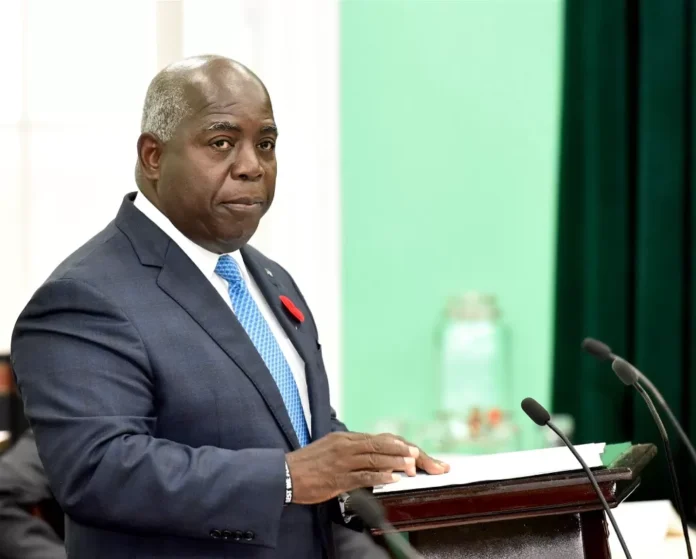The Bahamas government’s budget deficit for the first four months of the 2024/2025 fiscal year has more than doubled compared to the same period in the previous year, according to the Ministry of Finance’s October 2024 “Monthly Fiscal Summary Report.” At the end of October 2024, the deficit stood at $274 million, a significant increase from the $119.7 million recorded during the first four months of the 2023/2024 fiscal year. The government had originally projected a deficit of $69.8 million for the entire 2024/2025 fiscal year.
Despite this rise in the deficit, Minister of Economic Affairs Michael Halkitis expressed confidence that the government would still meet its target for the year. The 2023/2024 fiscal year had a final deficit of $186.7 million, exceeding the originally projected $131.1 million.
The report also highlighted a growing gap between government revenue and spending. While revenue receipts rose by 3.1 percent ($7.7 million) to $256 million, spending surged by 11.2 percent ($34.6 million) to $344.5 million. Notably, value-added tax (VAT) collections reached $471.9 million, with a projection of $1.5 billion for the full year.
In terms of expenditures, recurrent outlays for October 2024 totaled $321.5 million, reflecting a 9 percent ($26.6 million) increase from the same month in 2023. Key areas of increased spending included goods and services, which rose by $27 million to $73.9 million, driven by higher payments for rent, utilities, and various services. Personal emoluments grew by $5 million to $73 million, while subsidies decreased by $5.7 million to $37.3 million. Capital expenditures also saw an increase, rising by $8 million to $23 million.
Prime Minister and Minister of Finance Philip Davis is expected to provide further details on the government’s budget performance during his mid-year budget statement, scheduled for February 26. In previous statements, Davis emphasized his administration’s success in improving the fiscal situation, noting a significant reduction in the deficit from 13.1 percent of GDP when they took office to 3.8 percent of GDP by the end of the last fiscal year. He also highlighted that under his leadership, the government had reduced the deficit by a billion dollars in less than three years, citing fiscal discipline and a focus on the welfare of the Bahamian people as key factors.















